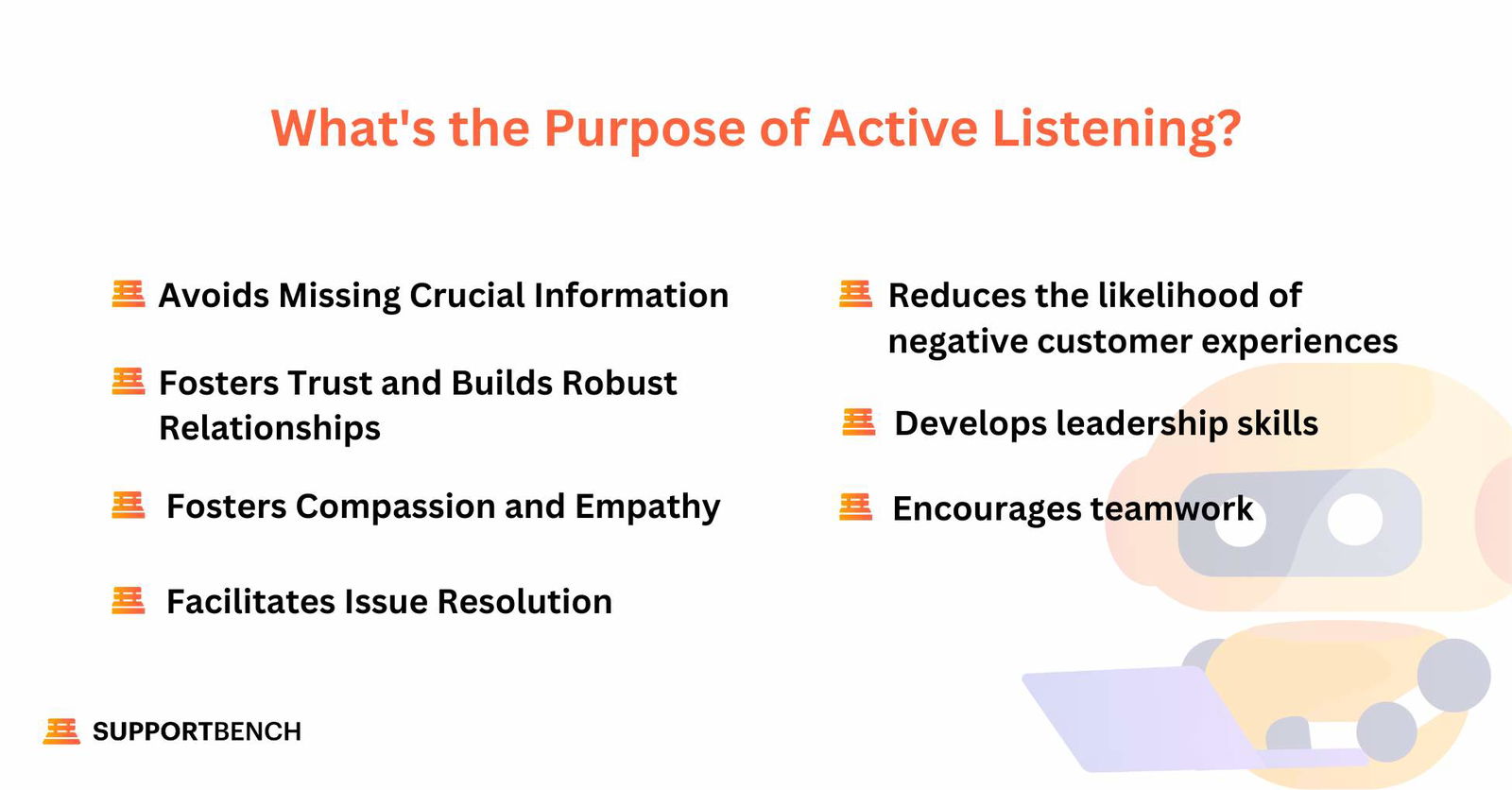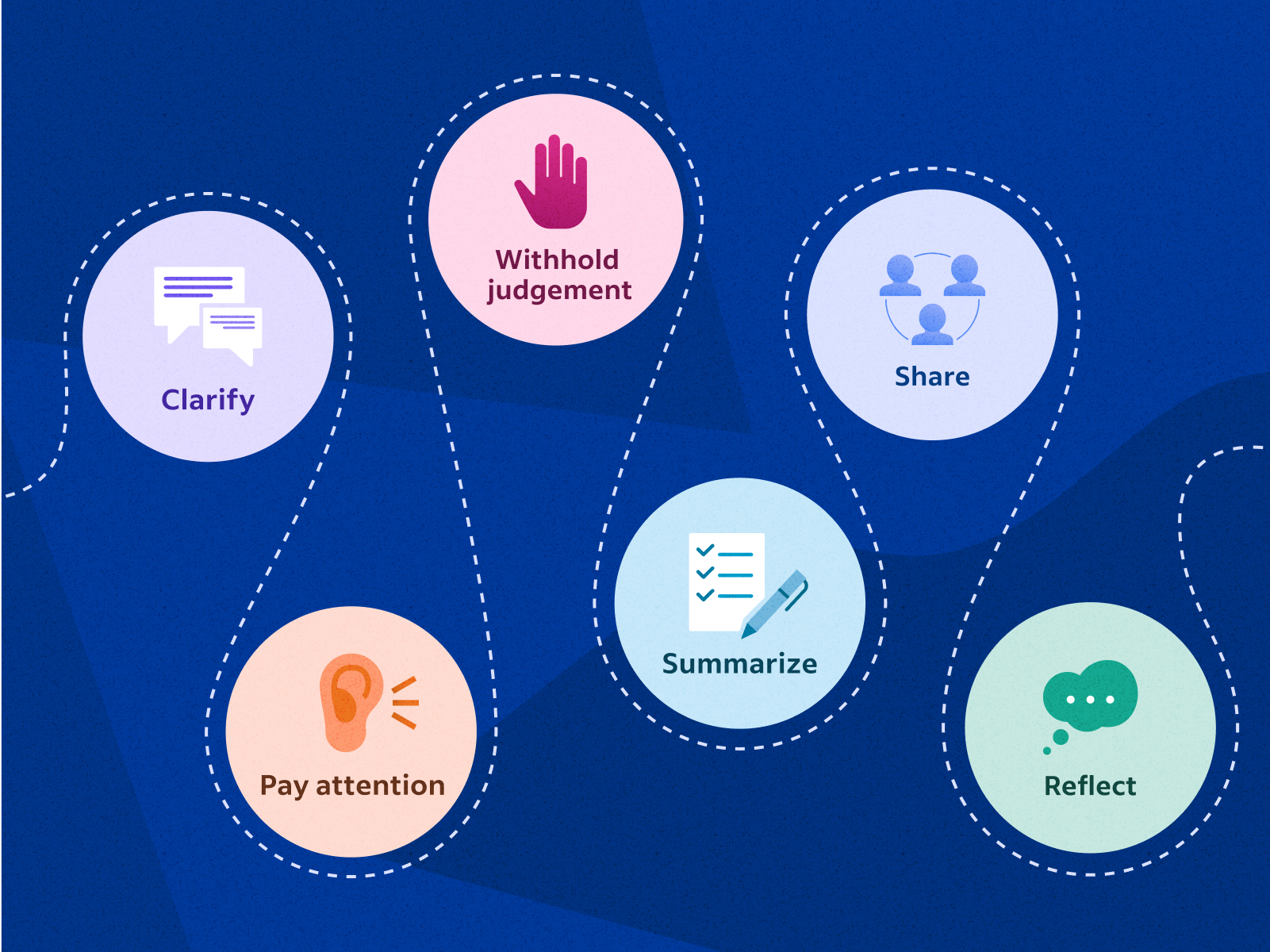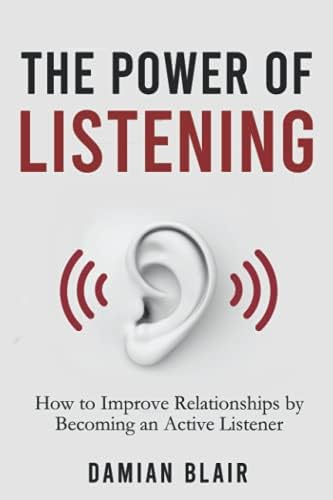
Understanding Active Listening
Definition of Active Listening
Active listening is more than just hearing words; it’s about fully engaging with the speaker. It involves not only listening attentively but also processing the information, responding thoughtfully, and recognizing nonverbal cues. For instance, during a conversation, nodding and maintaining eye contact demonstrates that one is genuinely invested in what is being shared.
Importance of Active Listening in Relationships
Active listening plays a vital role in fostering healthy relationships. Here’s how it impacts connections:
- Enhances Understanding: It allows partners to better grasp each other’s perspectives.
- Strengthens Bonds: When individuals feel heard, it deepens their emotional connection.
- Reduces Conflicts: Issues can be resolved more amicably when both sides feel validated.
Much like when a friend shares a tough day, actively listening can make all the difference in their healing journey.

Benefits of Active Listening
Improved Communication
Active listening significantly enhances communication. By giving one’s full attention, misunderstandings can be minimized. For instance, when discussing plans with a partner, truly listening avoids assumptions that often lead to confusion.
- Clarifies Messages: Active listeners ask questions that promote clarity.
- Encourages Transparency: Open dialogue flourishes.
Building Trust and Empathy
Moreover, active listening fosters trust and empathy in relationships. When individuals feel understood, it nurtures a safe space for them to express their feelings.
- Promotes Openness: Sharing thoughts becomes easier.
- Deepens Connections: Empathetic exchanges create stronger ties.
Think of a time when listening genuinely made someone feel valued; that’s the essence of building trust through active listening.

Core Skills of Active Listening
Nonverbal Communication
To excel at active listening, mastering nonverbal communication is essential. Body language, facial expressions, and eye contact all convey engagement. For instance, leaning slightly forward shows interest and warmth.
- Maintain Eye Contact: It signifies attentiveness.
- Use Open Body Language: Avoid crossing arms to appear inviting.
Paraphrasing and Summarizing
Additionally, practicing paraphrasing and summarizing ensures clarity in conversations. By restating or summarizing key points, the listener confirms understanding, allowing for any necessary corrections.
- Check for Understanding: Phrases like “So, what you’re saying is…” help clarify.
- Reinforce Key Ideas: Summarizing at the end solidifies important messages.
Using these skills not only enhances comprehension but also reassures the speaker that their thoughts matter, solidifying the connection even further.

Barriers to Active Listening
Distractions and Multitasking
Despite the benefits of active listening, several barriers can hinder this essential skill. One major obstacle is distractions, particularly in our multitasking world. Imagine trying to engage in a heartfelt conversation while scrolling through your phone; it’s nearly impossible to fully absorb the message.
- Environmental Distractions: Noisy surroundings can pull focus.
- Mental Multitasking: Juggling tasks can compromise engagement.
Prejudice and Biases
Another significant barrier comes from prejudices and biases. If preconceived notions cloud judgment, active listening becomes ineffective. For example, if a listener assumes they know what the speaker will say based on past experiences, they miss crucial new insights.
- Challenge Stereotypes: Approach conversations without assumptions.
- Stay Open-Minded: Embrace different perspectives for richer dialogue.
Recognizing these barriers is the first step toward fostering genuine connections and improving overall communication.

Techniques for Practicing Active Listening
Reflective Listening
To cultivate active listening, one effective technique is reflective listening. This method involves mirroring back what the speaker says, ensuring they feel heard. For example, if a friend expresses frustration about work, responding with, “It sounds like you’re feeling overwhelmed by your tasks,” shows understanding.
- Encourage Elaboration: Reflective listening invites the speaker to share more.
- Builds Rapport: It creates a trusting atmosphere.
Asking Open-Ended Questions
Another powerful technique is asking open-ended questions. Instead of simple yes or no inquiries, these questions encourage deeper conversation. For instance, asking, “What did you enjoy most about your day?” sparks more thoughtful responses.
- Promotes Dialogue: Open-ended questions lead to richer discussions.
- Encourages Sharing: They allow speakers to express their thoughts freely.
Implementing these techniques can transform casual exchanges into meaningful conversations, enhancing relationships and understanding.

Importance of Validation in Active Listening
Acknowledging Feelings
Validation is a crucial element of active listening, as it involves acknowledging the speaker’s feelings. When someone shares their emotions, responding with phrases like “I can see this is really affecting you” demonstrates empathy and respect.
- Affirms Experience: Validating feelings ensures the speaker feels understood.
- Builds Connection: It deepens emotional bonds between individuals.
Providing Constructive Feedback
Moreover, validation comes into play when providing constructive feedback. Instead of only pointing out areas for improvement, it’s important to recognize accomplishments as well. For example, saying, “You handled that situation well, and I see how you can improve it further,” encourages growth while maintaining self-esteem.
- Encourages Growth: Constructive feedback helps the speaker feel supported.
- Promotes Open Dialogue: It ensures discussions remain productive and positive.
Ultimately, validation enriches conversations, transforming simple exchanges into meaningful interactions filled with understanding and support.

Active Listening in Conflict Resolution
De-escalation Techniques
In conflict resolution, active listening is invaluable, especially when employing de-escalation techniques. By remaining calm and attentive, one can diffuse tense situations. For instance, when emotions run high during a disagreement, using phrases like “I understand this is frustrating” can help lower defenses.
- Maintain a Calm Tone: A soothing voice can ease tensions.
- Use Nonverbal Cues: Nodding and maintaining eye contact show engagement.
Finding Common Ground
Once emotions are stabilized, finding common ground becomes essential. By identifying shared goals or values, both parties can shift focus from conflict to collaboration. For example, saying, “We both care about this project succeeding,” reinforces teamwork.
- Encourage Collaboration: Emphasizing shared objectives fosters unity.
- Seek Solutions Together: Joint problem-solving leads to better outcomes.
Utilizing active listening in these scenarios not only resolves conflicts but also strengthens relationships by fostering understanding and cooperation.

Cultivating Active Listening in Everyday Interactions
Mindful Listening
To cultivate active listening in daily interactions, one must embrace mindful listening. This involves being fully present during conversations, free from distractions. For instance, putting away your phone when chatting with a friend shows that their words are important.
- Focus on the Speaker: Attend to both verbal and nonverbal cues.
- Avoid Interruptions: Let them finish their thoughts before responding.
Practice and Patience
Additionally, developing active listening skills takes practice and patience. Regularly engaging in conversations while consciously applying these techniques reinforces learning. For example, dedicating time each week to have meaningful chats with family can enhance skills over time.
- Reflect on Conversations: After chats, consider what you heard and learned.
- Stay Committed: Improvement comes with consistent effort.
By incorporating mindful listening and practicing patience, individuals can create richer, more meaningful interactions, ultimately fostering deeper connections in their relationships.

Conclusion
Recap of Active Listening Benefits
In summary, active listening enhances communication, builds trust, and fosters empathy in relationships. It allows individuals to feel understood and respected, creating a healthier dialogue. The core skills of nonverbal communication and reflective listening play pivotal roles in achieving these benefits.
- Improves Understanding: Clarifies messages and reduces conflicts.
- Strengthens Bonds: Deepens emotional connections.
Encouragement to Implement Active Listening in Relationships
As you move forward, consider implementing active listening techniques in your everyday interactions. Start small—perhaps during dinner conversations or casual chats with friends.
- Be Present: Make a conscious effort to focus on the speaker.
- Practice Regularly: Like any skill, the more you practice, the better you’ll become.
By committing to active listening, you can enhance your relationships, leading to more meaningful and authentic connections.
